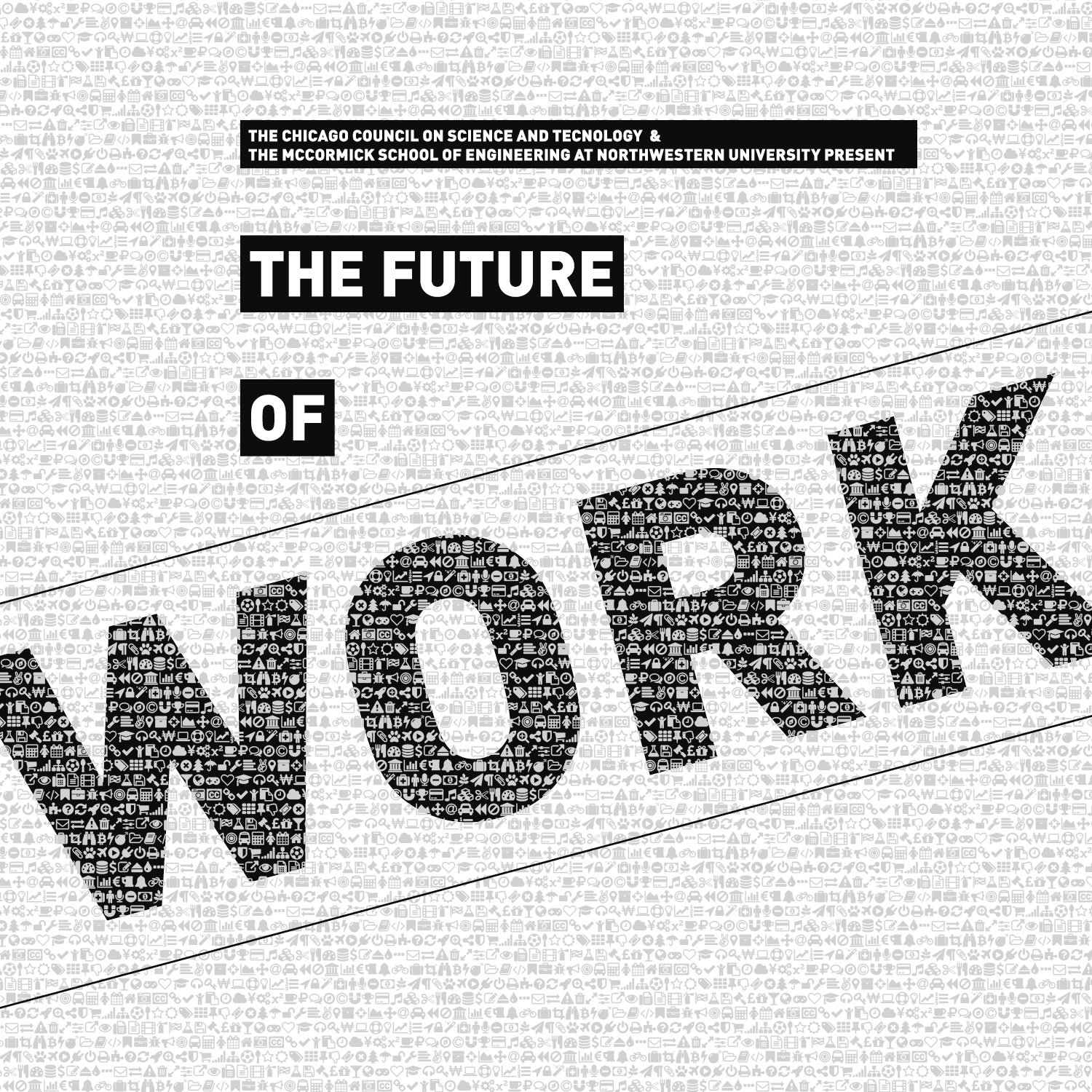How Technology Will Change the Way We Work
Technology has dramatically changed the way we work: it automates processes, collects and organizes our information, and offers new lines for global communication. It both opens new industries and shutters traditional strongholds at an accelerating pace, and it continually redefines what it means to “work” in the world today. Advances in areas such as robotics and artificial intelligence have caused equal amounts of excitement and alarm. How will technology of the future continue affect our work? Will the pace of innovation continue to accelerate?
Cosponsored by the Chicago Council on Science and Technology and Northwestern University’s McCormick School of Engineering and Applied Science.
Speakers:
Larry Birnbaum is the chief scientific advisor of Narrative Science and professor of electrical engineering and computer science and journalism at Northwestern University, where he previously served as chair of computer science. His research is focused on natural language processing, intelligent information systems, and human-computer interaction. Birnbaum received his BS and PhD from Yale University, where he served as a faculty member in computer science before joining Northwestern.
Kris Hammond is co-founder and chief scientist of Narrative Science, which turns data into a ctionable stories and insights. He is also a professor of electrical engineering and computer science and journalism at Northwestern University. Prior to joining the faculty at Northwestern, he founded the University of Chicago’s Artificial Intelligence Laboratory. His research has been primarily focused on artificial intelligence, machine-generated content, and context-driven information systems. He received his PhD from Yale University.
Malcolm MacIver is an associate professor of mechanical and biomedical engineering at Northwestern University, where he pioneered the development of a new sensor inspired by the ability of certain fish to sense using a self-generated electric field and highly maneuverable propulsion systems based on fish locomotion. He develops science-inspired interactive art installations that have been exhibited internationally and has served as science adviser for several science fiction television series and movies, including Battlestar Galactica prequel Caprica, Tron: Legacy, Superman, and Man of Steel and served as a blogger for Discover Magazine.
Joel Mokyr is the Robert H. Strotz Professor of Arts and Sciences and professor of economics and h istory at Northwestern University and is the Sackler Professor (by special appointment) at the Eitan Berglas School of Economics at the University of Tel Aviv. He specializes in economic history and the economics of technological and population change. He has authored more than 80 articles and books, including his most recent book The Enlightened Economy, published by Yale University Press and Penguin in 2009. He serves as editor in chief of the Princeton University Press book series, Economic History of the Western World, and is a director of the National Bureau of Economic Research. He received his PhD from Yale University.
Moderator: Julio M. Ottino Dean, McCormick School of Engineering and Applied Science, Northwestern University
Schedule:
4:00-4:15 Welcome and Introductions
4:15-4:45 Kris Hammond and Larry Birnbaum
4:45-5:15 Malcolm MacIver
5:15-5:45 Joel Mokyr
5:45-6:15 Q&A and wrap-up
6:15 Reception and networking
Admission is free. Please register by following this link: https://events.r20.constantcontact.com/register/eventReg?oeidk=a07e9qth7zw4b1883b5&oseq=&c=&ch=
Discounted parking is available to the first 50 attendees, at the 202 E Huron parking garage. Ask at the C2ST registration table, and you can purchase a ticket to exit the garage at a discounted rate.
